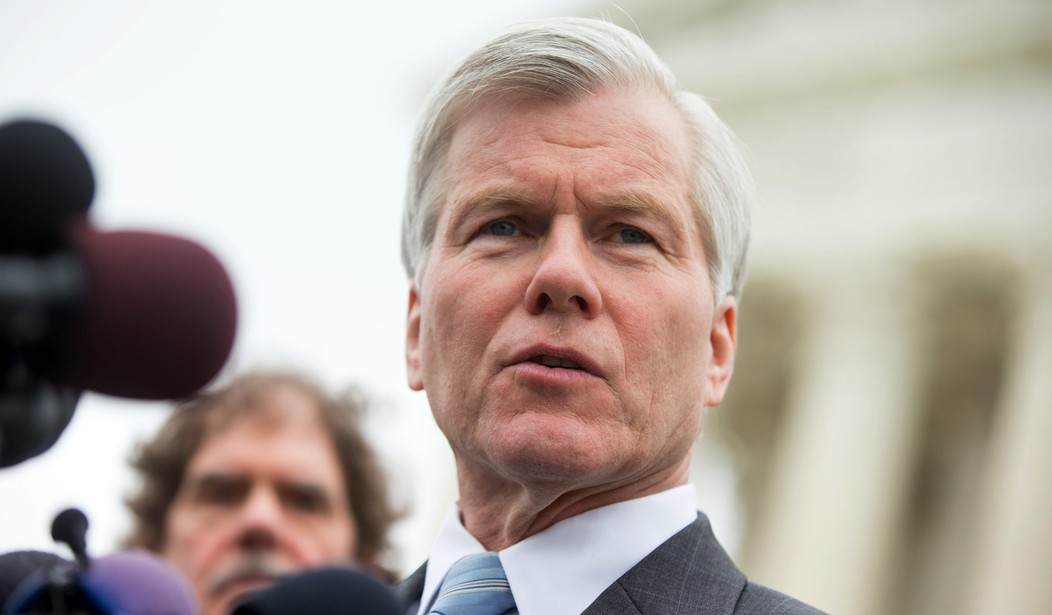In a stunning ruling which could have wide-ranging implications on criminal charges for politicians across the country, the Supreme Court struck down the corruption charges against former Virginia Governor Robert “Bob” McDonnell. While McDonnell arguably misused his government office, the Court ruled that the federal bribery statute should be limitedly applied, in order to protect the ruling authority of public officials.
“There is no doubt that this case is distasteful; it may be worse than that. But our concern is not with tawdry tales of Ferraris, Rolexes, and ball gowns,” wrote Chief Justice John G. Roberts Jr. in the court’s opinion for McDonnell v. U.S.
“It is instead with the broader legal implications of the governments’ boundless interpretation of the federal bribery statute,” Roberts explained. “A more limited interpretation of the term ‘official act’ leaves ample room for prosecuting corruption, while comporting with the text of the statute and the precedent of this court.”
McDonnell and his wife, Maureen, were convicted in 2014 of taking more than $175,000 in gifts and loans from a Virginia businessman, Jonnie Williams, in exchange for promoting vitamin products with his company, Star Scientific. The former governor was found guilty of 11 counts on charges of receiving gifts and loans from Williams.
Maureen McDonnell’s appeal is proceeding separately. Bob McDonnell was sentenced to two years in prison, and Maureen McDonnell to one year and one day, but each has been allowed to remain free during appeals.
Federal prosecutors have the option to retry McDonnell given the Supreme Court’s interpretation of federal bribery statutes. “The ball is very much in the U.S. Attorney’s Office as to whether they want to try him again,” Charles E. James Jr., a former federal prosecutor, told the Richmond Times-Dispatch.
“I do not believe the government has the evidence to meet the new standard,” added Andrew G. McBride, another former federal prosecutor. “I think retrial is very unlikely.
Next Page: What the ruling means — the Supreme Court struck down “a legal rule that would make a felon of every official at every level of government…”
It is a felony under federal law for a government official to promise to take “official action” in exchange for something of value. McDonnell’s lawyers argued that he only referred Star Scientific executives to other government decision makers. They defined “official action” as limited to exercising actual government power, threatening to do so, or pressuring others to do so.
“The government openly advocates a legal rule that would make a felon of every official at every level of government — from a Cabinet secretary to a janitor — who accepts travel in exchange for public appearances, who has lunch with a lobbyist when both know the lobbyist will pick up the check, who trades campaign contributions for a few minutes of time, or who cleans one classroom with special care because its teacher brings him gift cards,” McDonnell’s lawyers wrote in an appeal brief.
Many thought McDonnell’s case hinged on Justice Antonin Scalia, who passed away in February, leaving the court equally divided between justices appointed by Republicans and Democrats. During the arguments in April, however, the justices expressed concern about the definition of “official action” and the precedent of giving unbridled power to prosecutors investigating corruption.
Even Justice Stephen Breyer, a Bill Clinton nominee, looked for a definition to catch wrongdoers but restrain the power of prosecutors who might bring “ridiculous” cases.
MdConnell was the first Virginia governor ever convicted of a crime, and the federal investigation plagued his last year in office. The popular governor, once considered a possible vice presidential candidate, suffered full humiliation as the proceedings of the trial revealed sordid details about his family’s personal lives and his rocky marriage.









Join the conversation as a VIP Member